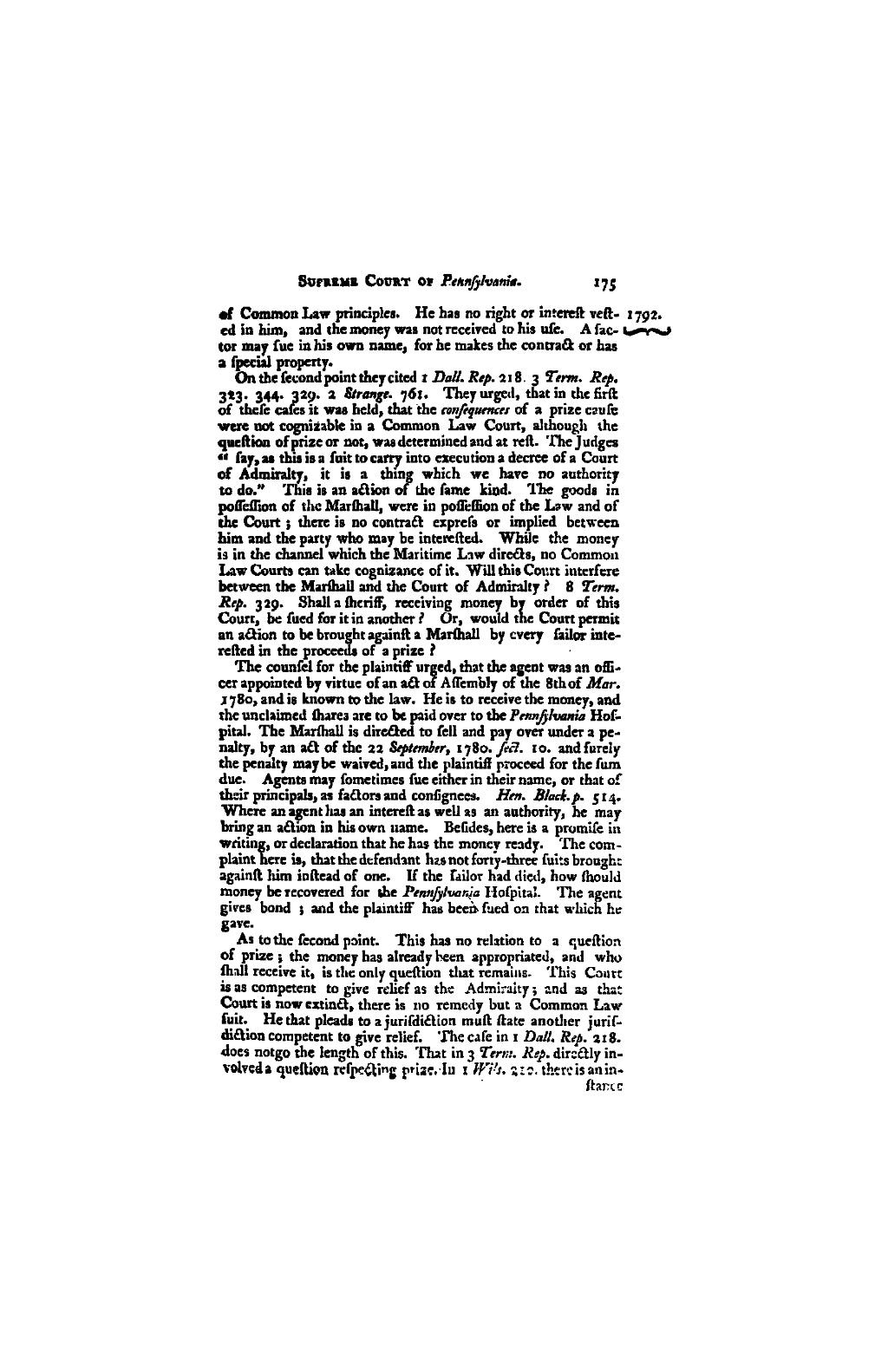Svennn. Cotmsr or Penqjloenie. 175 of Common Law principles. He has no right or interelt velt- 1792. ed in him, and the money was not received to his ufe. Afac· |¢*rJ tor may fue in his own name, for he makes the contraék or has a l' is] propert . gthe fee.-ondisoint they cited 1 Dal!. Rep. 21 8. 3 Term. Rep. 313. 344. 29. 2. Strange. 76t. They urged, that in the Erik of tbefe cal?-:s it was held, that the mg/`rqumt·e.r of a prize cauli: were not cogniaable in a Common Law Court, although the quellion of prize or not, was determined and at reli. The judges •* |`ay,a• this is a fuit tocarry into execution a decree of a Court of Admiralty, it is a :11:1*,; which we have no authority to do.” T is is an aélion the fame kind. The goods in pollefliott of the Marlhall, were in poilisllion of the Law and of the Court; there is no contraét exprefs or implied between him and the party who may be interelted. While the money is in the channel which the Maritime Law direéls, no Common Law Courts can take cognizant: of it. Will this Court interfere between the Marfhall and the Court of Admiralty? 8 Term. Rep. gag. Shall a fherilf, receiving money hy. order of this Court, be fued for it in another? Or, would t e Court permit nn a£tion to be brought againlk a Marlhall by every failcr inte- relled in the proceeds of a prize ? · The counfel for the plaintiE ur ed, that the agent was an odi- cer appointed by virtue of an a£’t0§ Alfemhly of the Sth of Mar. 178o, and is known to the law. He is to receive the money, and the unclaimed lharea are to be paid over to the Pumjluunia Hofa pital. The Marlhall is direfled to fell and pay over under a pe- nalty, by an af.! of thc 22 Scptemhr, r·]8o. fa?. to. and furely the penalty maybe waived, and the plaintill proceed for the fum due. Agents may fometimes fue either in their name, or that of their principals, as factors and conlignees. Hm. Blaelnp. SI4. Where anayent has an interelk as well as an authority, he may bring an aelwn in hisown name. Bclidcs, here is a prumife in writing: ordeelaration that he has the money ready. The com- plaint ere is, that the defendant has not forty-three fuits brought againfl: him inlkead of one. lf the failor had died, how lhould money berecovered for the Penqfvlwmo Hofpital. The agent gives bond ; and the plaintilf has been hed on that which he gave. As to the fecond point. This has no relation to a queilion of prize; the money has already been appropriated, and who {hall receive it, is the only quelkion that remains. This Court as as competent to give relief as the Admiralty; and as tha: Court is now extinit, there is no remedy but a Common Law fait. He that pleads to a jurifdiftion mult (late another jurif- diction competent to give relief. The cafe in r Dall. R41. 1.18. does notgo the length of this. That in 3 ‘l'er:::. Ry:. dircétly in- Vvlvcda queltion refpeéling pvia•:.·lu 1 WW:. 1*.::. there is EH in- amc
�
